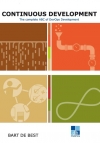 € 69,50
€ 69,50
This book is a collection of 4 Continuous Everything books, namely: 1. Continuous Planning 2. Continuous Design 3. Continuous Testing 4. Continuous IntegrationContinuous Everything is the collective name for all Continuous developments that are currently going on in the DevOps world. By placing these under one heading, structure can be applied to individual developments and best practices can be defined on the basis of patterns. The term 'Continuous' includes the terms: outcome driven development, incremental & iterative working, waste reduction through a Lean approach, holistic working by including people, process, partner & technology in the scope and giving continuous attention to a deliverable (product or service) across the entire lifecycle from an end-to-end approach. This book is a collection of 4 Continuous Everything books, namely: 1. Continuous Planning 2. Continuous Design 3. Continuous Testing 4. Continuous Integration For each Continuous Everything aspect area it is indicated how to organise it in your organisation based on the change manager paradigm and architecture principles and models. The best practices are also discussed per aspect area. With this book in hand, you have a powerful tool to further your DevOps skills.
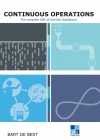 € 69,50
€ 69,50
This book is a collection of 4 Continuous Everything books, namely: 1. Continuous Deployment 2. Continuous Monitoring 3.Continuous Learning 4. Continuous AssessmentContinuous Everything is the collective name for all Continuous developments that are currently going on in the DevOps world. By placing these under one heading, structure can be applied to individual developments and best practices can be defined on the basis of patterns. The term 'Continuous' includes the terms: outcome driven development, incremental & iterative working, waste reduction through a Lean approach, holistic working by including people, process, partner & technology in the scope and giving continuous attention to a deliverable (product or service) across the entire lifecycle from an end-to-end approach. This book is a collection of 4 Continuous Everything books, namely: 1. Continuous Deployment 2. Continuous Monitoring 3.Continuous Learning 4. Continuous Assessment For each Continuous Everything aspect area it is indicated how to organize it in your organization based on the change manager paradigm and architecture principles and models. The best practices are also discussed per aspect area. With this book in hand, you have a powerful tool to further your DevOps skills.
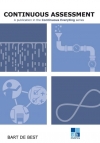 € 56,45
€ 56,45
This book is an excellent mirror for any DevOps team that wants to quickly form a complete picture of DevOps best practices to be adopted.Continuous Assessment is an approach that aims to allow DevOps teams to continuously develop in terms of knowledge and skills in the field of business, development, operations and security. This book provides a tool to make the DevOps teams aware where they stand in terms of development and what next steps they can take to develop. This book is a publication in the Continuous Everything series. The content consists of the business case for Continuous Assessment, the architecture of the two assessment models and the assessment questionnaires. The DevOps Cube model is based on the idea that DevOps can be viewed from six different perspectives of a cube, namely: 'Flow', 'Feedback', 'Continuous Learning', 'Governance', 'Pipeline' and 'QA'. The DevOps CE model is based on the Continuous Everything perspectives, namely: 'Continuous Integration', 'Continuous Deployment', 'Continuous Testing', 'Continuous Monitoring', Continuous Documentation' and 'Continuous Learning'. This book is an excellent mirror for any DevOps team that wants to quickly form a complete picture of DevOps best practices to be adopted.
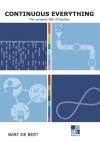 € 119,95
€ 119,95
This book is a collection of 8 Continuous Everything books. With this book in hand, you have a powerful tool to further your DevOps skills.Continuous Everything is the collective name for all Continuous developments that are currently going on in the DevOps world. By placing these under one heading, structure can be applied to individual developments and best practices can be defined on the basis of patterns. The term 'Continuous' includes the terms: outcome driven development, incremental & iterative working, waste reduction through a Lean approach, holistic working by including people, process, partner & technology in the scope and giving continuous attention to a deliverable product or service across the entire lifecycle from an end-to-end approach. This book is a collection of 8 Continuous Everything books, namely: 1. Continuous Planning 2. Continuous Design 3.Continuous Testing 4. Continuous Integration 5. Continuous Deployment 6. Continuous Monitoring 7. Continuous Learning 8. Continuous Assessment. For each Continuous Everything aspect area it is indicated how to organize it in your organization based on the change manager paradigm and architecture principles and models. The best practices are also discussed per aspect area. With this book in hand, you have a powerful tool to further your DevOps skills.
Dalton IDee (voorheen Dalton Paspoort). Kwantumkortingen worden automatisch gegeven als u meerdere exemplaren tegelijkertijd bestelt van dit artikel: 10 of meer exemplaren: 5% korting 30 of meer exemplaren: 10% korting 100 of meer exemplaren: 15% korting
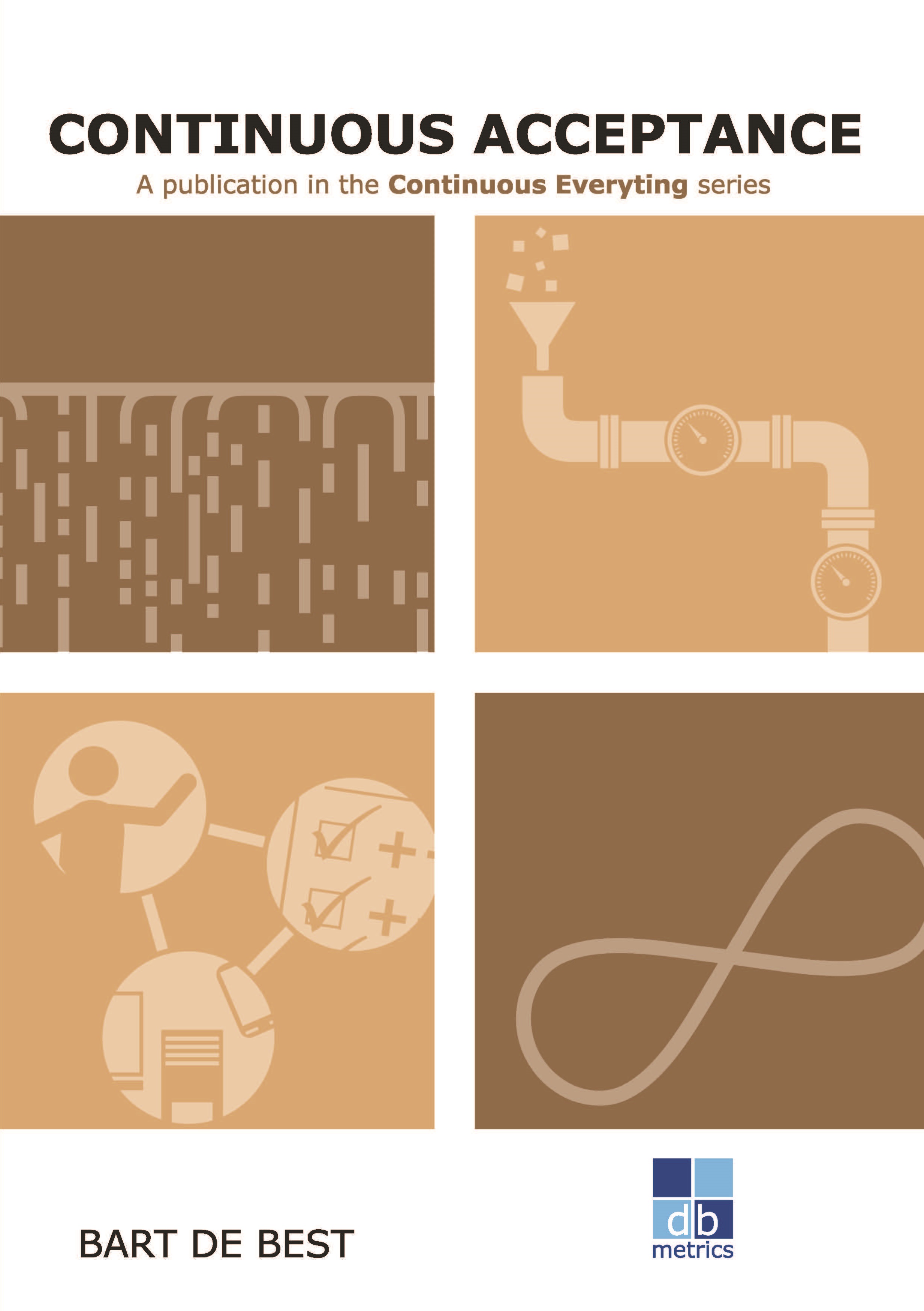 € 56,45
€ 56,45
In this CE value stream, the specific acceptance criteria are derived from the business value streams by looking for the risks that the business goals are not achieved. The countermeasures for these risks are tested for effectiveness through acceptance tests. By analogy, the generic acceptance criteria are derived from the CE value streams that flesh out the DevOps Lemniscate. This book is a publication in the continuous everything series. The content consists of the discussion of the derivation of acceptance criteria. An example elaboration is also given for specific acceptance criteria and a number of generic acceptance criteria are given for the following value streams: Continuous Planning, Continuous Design, Continuous Testing, Continuous Integration, Continuous AI, Continuous Deployment, Continuous Monitoring, Continuous Learning, Continuous Security, Continuous Auditing, Continuous SLA and Continuous Assessment.
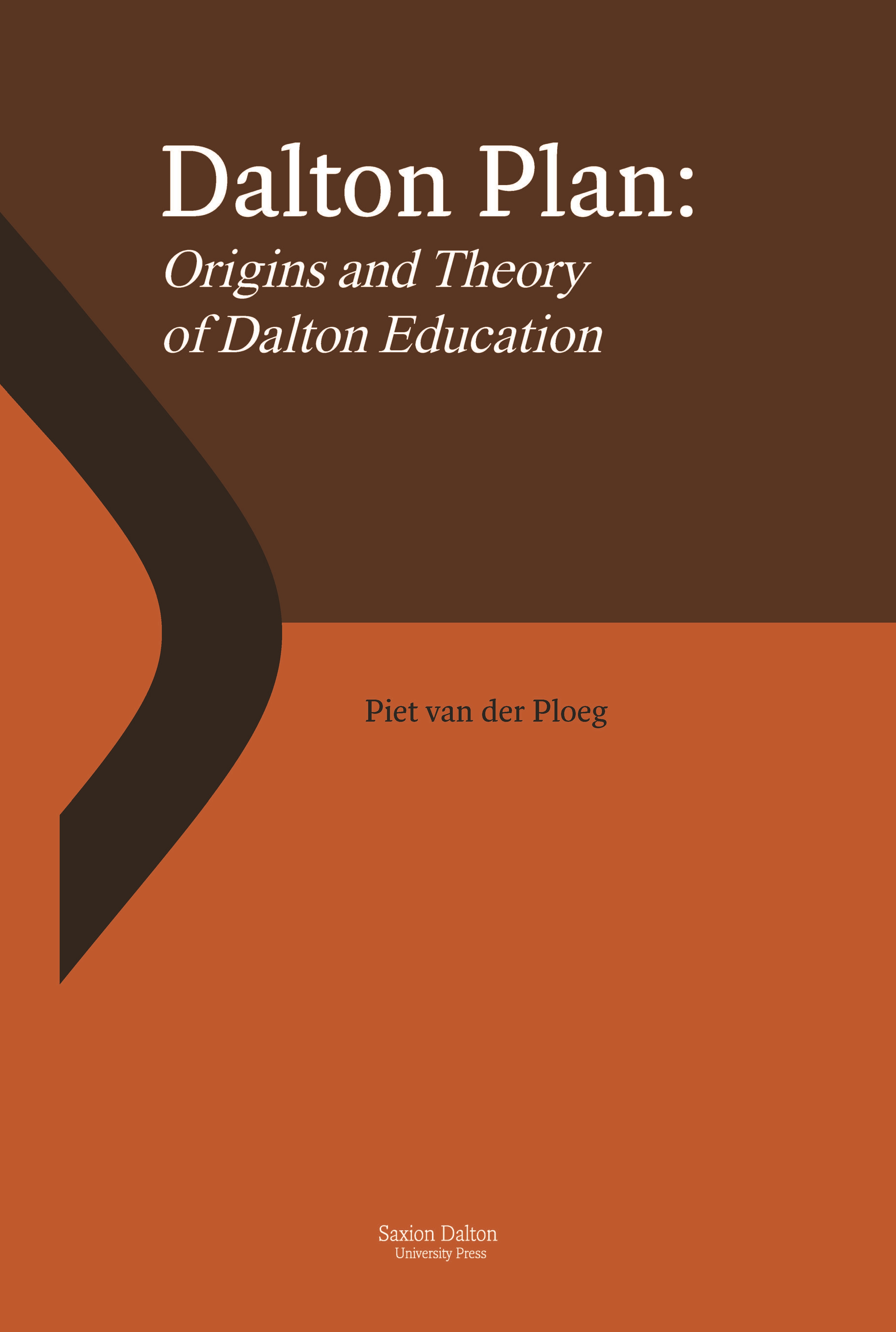 € 25,95
€ 25,95
Dr. Piet van der Ploeg lectures Philosophy of Education at the University of Groningen in the Netherlands. His research interests include the history of reform education and the philosophy of citizenship education. Apart from John Dewey, no American educational reformer has been as internationally successful and influential as Helen Parkhurst, the founder of Dalton education. In the 1920s and 1930s, Dalton education was spread throughout the world. At the moment the Netherlands is the country with the highest density of Dalton schools. Almost four hundred elementary schools (five percent of all) are Dalton schools. This historical and theoretical study gives an account of the practice and the theory of the Dalton Plan. Next it discusses the background and context of the Dalton Plan. It also compares the Dalton Plan to other critical and innovative approaches to education. Helen Parkhurst was herself not keen on historical and theoretical exercises. This study shows that historical and theoretical research is interesting nonetheless. It demonstrates the distinctiveness of Dalton education, for instance: *that learning by experience is not the same as learning by doing and that experience doesn't have the same role for Parkhurst as it does for other reformers; *that there are important differences between working with assignments in the Dalton Plan and working with materials in the Montessori Method; *that the Dalton Plan holds efficiency as its main objective, whilst at the same time opposing the efficiency-hype seen at the beginning of the twentieth century; *that the meaning of cooperation in the Dalton Plan is not the same as what we usually mean by this; *that Parkhurst's school as a community distinguishes itself from Dewey's school as a community; and *that freedom in the Dalton Plan is something other than freedom of choice.
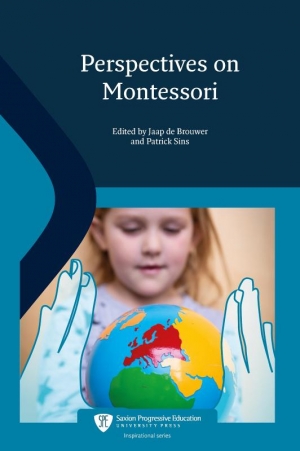 € 25,95
€ 25,95
A Montessori school is a school that practices the pedagogy of Maria Montessori. For over 100 years, the Montessori method has successfully contributed to the education of children all over the world and the method is still being used daily: her legacy can be found in thousands of Montessori schools in more than 148 countries across the globe. Confirmation that the Montessori method is future proof and ready for the coming century. The Montessori method has been extensively described and has influenced many people working in education. This book is a collection of personal perspectives, providing an insight into the ways in which Montessori has helped to shape how practitioners, school leaders and researchers perceive the purpose, core practices and outcomes of Montessori education. After the foreword by Adele Diamond, 19 international experts write about their own vision of the Montessori method. The aim of Perspectives on Montessori is to highlight and celebrate the success and uniqueness of the Montessori method to inspire and enrich readers with respect to the ways in which the Montessori method is envisioned and implemented. The book also challenges you, our reader, to reflect on your own perspective on Montessori. Perspectives on Montessori consists of the contributions of the following authors: Marisa Canova - Cofounder and Director of the Training Center at Fundación Argentina María Montessori, Argentina Connie Carballo - Cofounder and Executive director of Fundación Argentina María Montessori, Argentina Astrid Steverlynck – Leader of Special Projects at Fundación Argentina María Montessori, Argentina Adele Diamond - Canada Research Chair Professor of Developmental Cognitive Neuroscience, Canada Chang Lei - Director of Xiamen XinMeng Montessori Kindergarten, China Rukmini Ramachandran - Director of Navadisha Montessori School and the Managing Trustee of the Indian Montessori Foundation, India Jaap de Brouwer – Researcher and Montessori trainer at Saxion University of Applied Sciences, the Netherlands Els Mattijssen - Montessori trainer and researcher at Vivid Onderwijs, the Netherlands Patrick Sins – Professor Alternative Education at Thomas More University of Applied Sciences and Professor Learning at Rotterdam University of Applied Sciences, the Netherlands Mirjam Stefels – Montessori trainer at Amsterdam University of Applied Sciences, the Netherlands Symen van der Zee – Professor Alternative Education at Saxion University of Applied Sciences, the Netherlands Jan Gaffney - Mentor, coach and consultant for Montessori education, school principal and past president of Montessori Aotearoa New Zealand, New Zealand Carla Foster – Director of Elementary Montessori training for the University of South-eastern, Norway Nina Helen Johansen – Executive director of Montessori Norway, Norway Beata Bednarczuk – Associate Professor in the Institute of Pedagogy at the Maria Curie-Skłodowska University, Poland André Shearer – Chairman of the Indaba Foundation, South-Africa Hsien-Wei Lee - Teacher at Harvard Montessori Educational Institution, Taiwan Barbara Isaacs – President of Montessori Europe, United Kingdom Angeline S. Lillard - Professor of Psychology at the University of Virginia, United States Ginni Sacket – Montessori trainer for the Association Montessori Internationale, United States
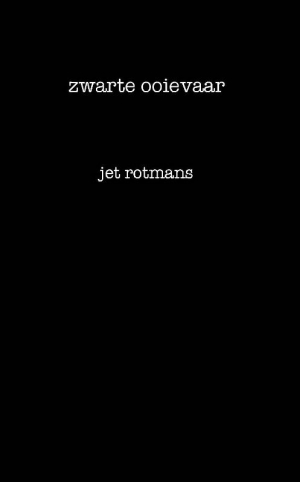 € 15,00
€ 15,00
als je er zolang over doet om je randen te laten zien niet de enige bent die dat soort grenzen heeft je pianist wilde worden en geen handen hebt als je een kind wilt ze er niet komen
 € 18,95
€ 18,95
Dit boek gaat over daltononderwijs. Als je daarover van alles wil weten, dan is dit boek precies iets voor jou! Het is ook slim om dit boek te lezen als je zelf nieuw bent op een daltonschool en je precies wilt weten wat je daar te wachten staat. En lijkt het je wat om op jouw daltonschool in de leerlingenraad te gaan zitten? Dan moet je dit boek echt lezen! Het boek is handig als je nieuwe kinderen met hun ouders, of andere gasten op school gaat rondleiden. Dan moet je natuurlijk wel wat over daltononderwijs weten. Er zijn natuurlijk nog veel meer redenen om dit boek te lezen. Misschien ben je wel nieuwsgierig naar ons. Wij zijn de hoofdpersonen in dit boek: Sanne en Maurice en gaan in dit boek zelf op onderzoek uit. We ontdekken bijvoorbeeld waar daltononderwijs vandaan komt, wie het bedacht heeft, waarom het zo heet, wat precies de bedoeling is en hoe daltononderwijs eruitziet. Bij dit boek hoort een website en een digitale leeromgeving. Kijk maar eens op: www.expeditiedalton.nl.
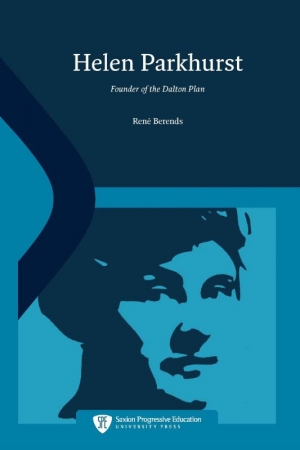 € 29,95
€ 29,95
There is increasing interest in Dalton education. For many parents, teachers and principals, the principles of this form of innovative education offer a direction to take in the further development of their schools. The origin of Dalton education lies in America. Its initiator, Helen Parkhurst, began her teaching career in rural Wisconsin more than a hundred years ago, in the autumn of 1904. She taught her students to work on assignments independently, with the freedom to plan and complete them as they saw fit, enlisting each other's help and the teacher's assistance when needed. Since then, Dalton education has evolved, but the essence of what Parkhurst intended has remained. As the popularity of Dalton education grows, so does the need for information about Parkhurst's life, her ideas, and her own teaching experiments. This biography aims to meet that need. It paints a picture of a woman who wanted to give children a voice in their work and in their own lives and succeeded in doing so through her tirelessness and powerful personality. But that drive also led to conflicts, disillusions and disappointments.
 € 20,00
€ 20,00
Bij het samenstellen van dit derde deel is veel gebruik gemaakt van het werk van Traleg Kyabgon Rinpoche [1955 - 2012]. Hij gaat uit van een simpele betekenis: Karma betekent letterlijk actie. Dzigar Kongtrül Rinpoche zegt hierover in zijn boek ‘It’s Up to You: “Karma is een vaak misbegrepen onderwerp in het Boeddhisme. Hij stelt dat de inzichten van Traleg Kyabgon, een eminent geleerde met grote kennis van zowel dharma als ook de manier van denken in de westerse wereld ons een diepere betekenis van het begrip Karma zal geven. Als bezoeker van Nepal word je getroffen door de vriende-lijkheid en behulpzaamheid van haar bewoners. Cynisch stelt deze of gene dan, dat het in het belang van hun Karma is dat de bewoners zo goed voor ons buiten-landers zorgen. Sommige westerlingen wijzen erop dat Karma leidt tot lethargie. Immers alles is vooraf bepaald. Echter niets is minder waar. Zo’n opmerking duidt op gebrek aan kennis over het begrip Karma. Een communicatieadviseur wees ons op het gevaar van het gebruik van het woord Karma bij de oprichting van de Karma Club, waarover binnen in het boek meer. In de huidige jongerentaal zou het een negatief begrip zijn. Ook dit klopt niet, hoewel jongeren het gebruiken om bijvoorbeeld een slecht resultaat op een toets of examen te verklaren.
